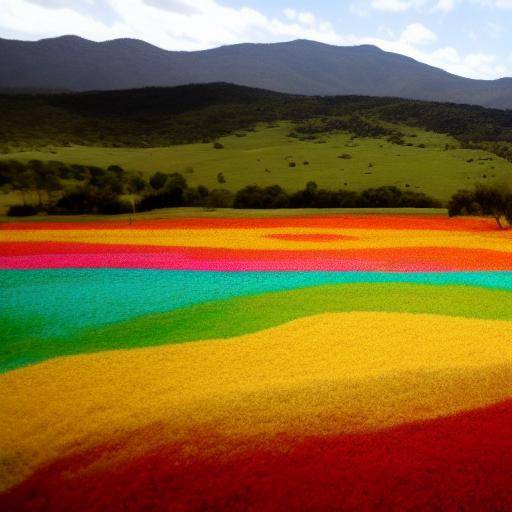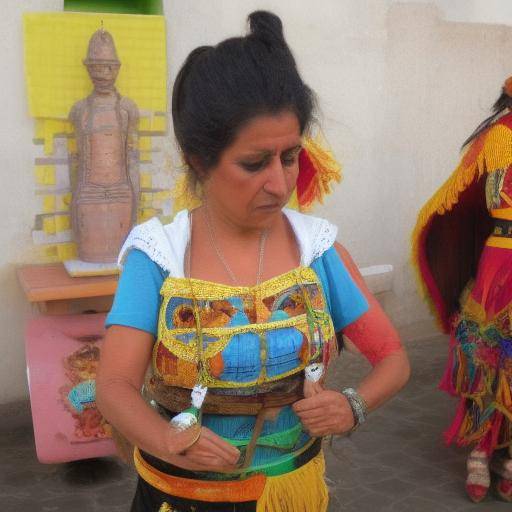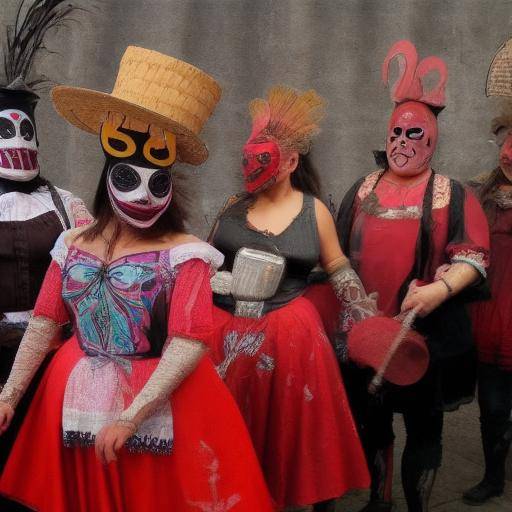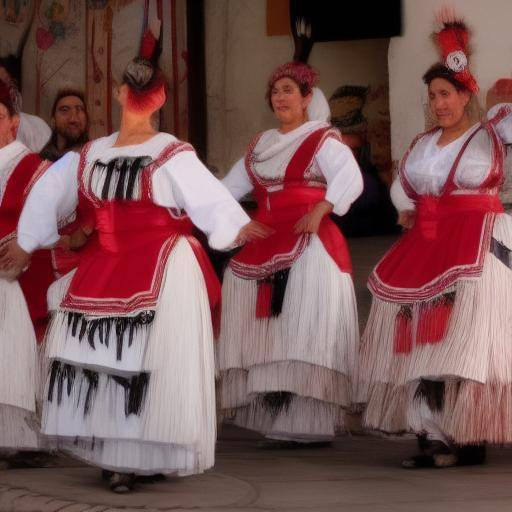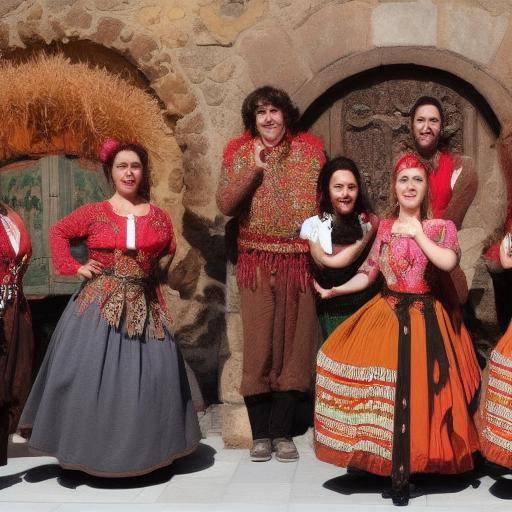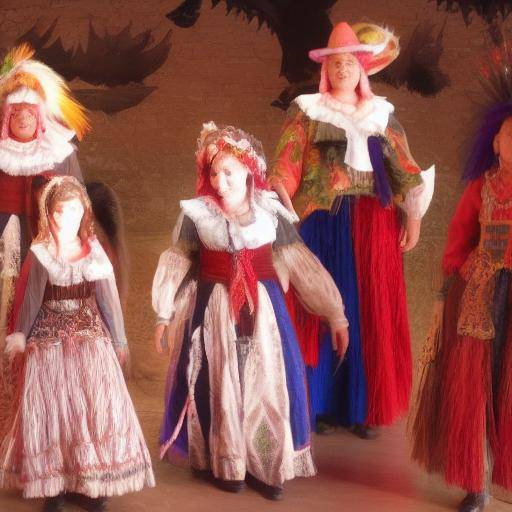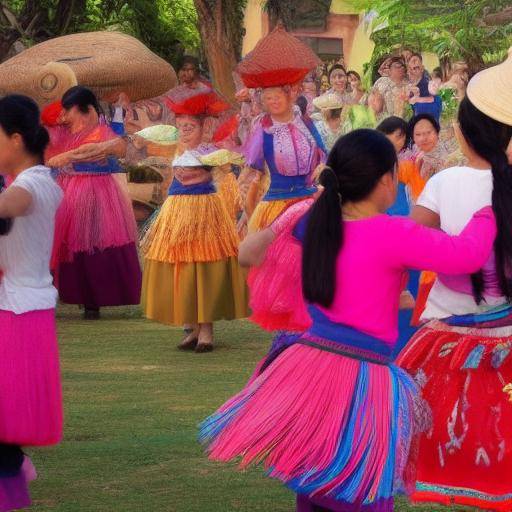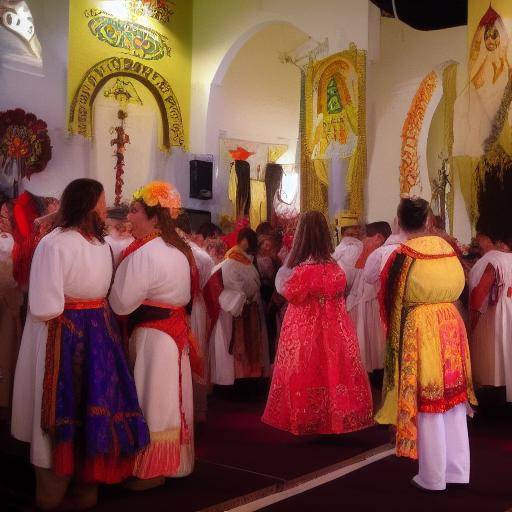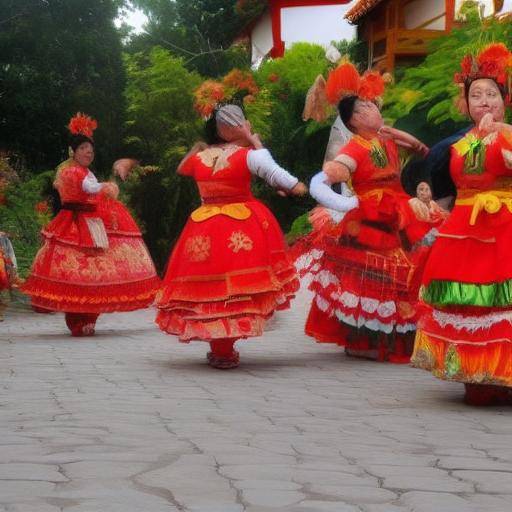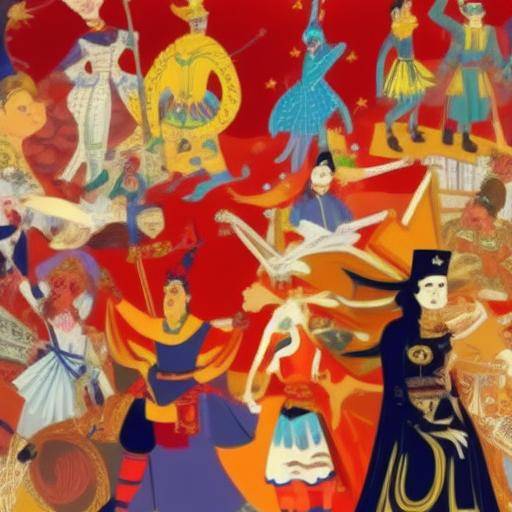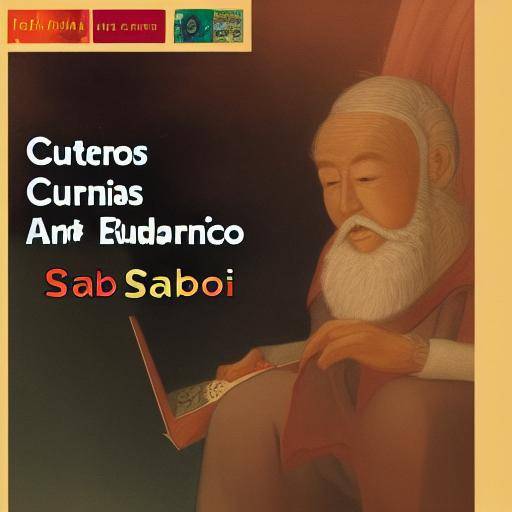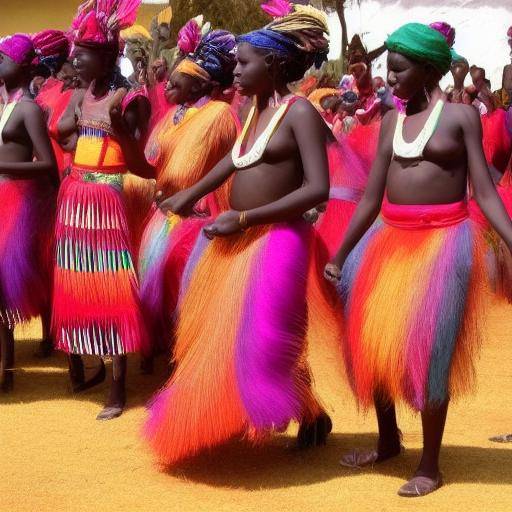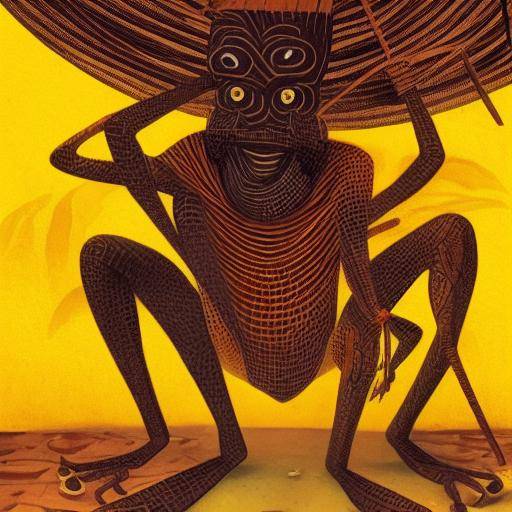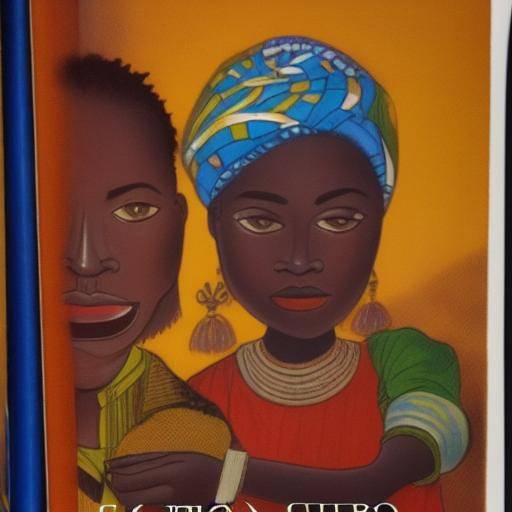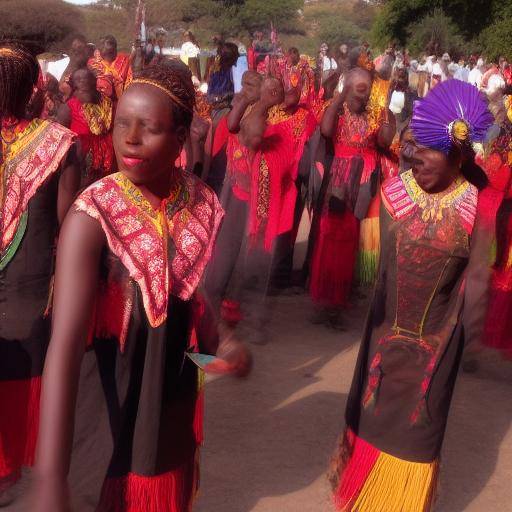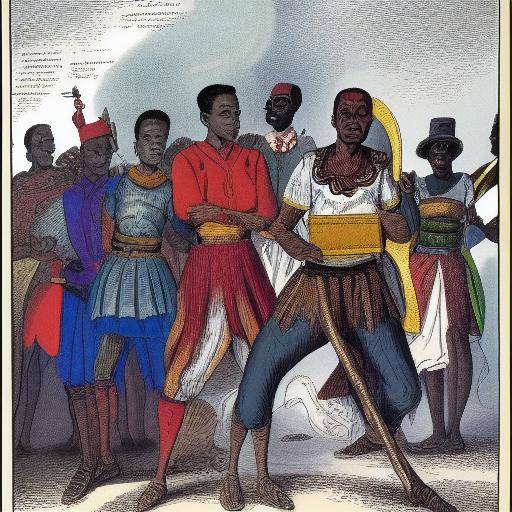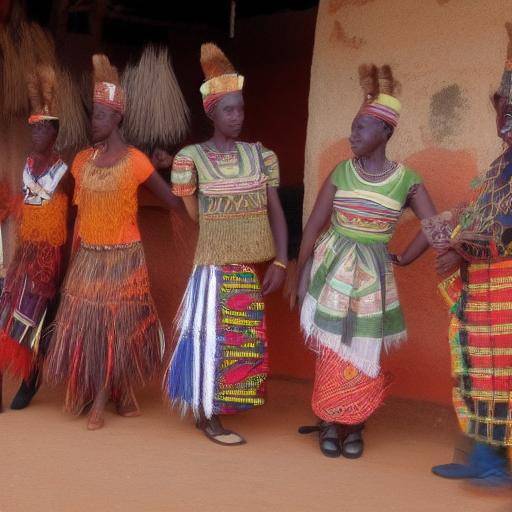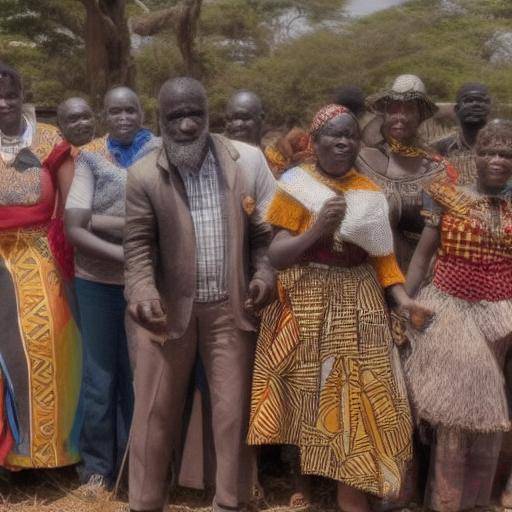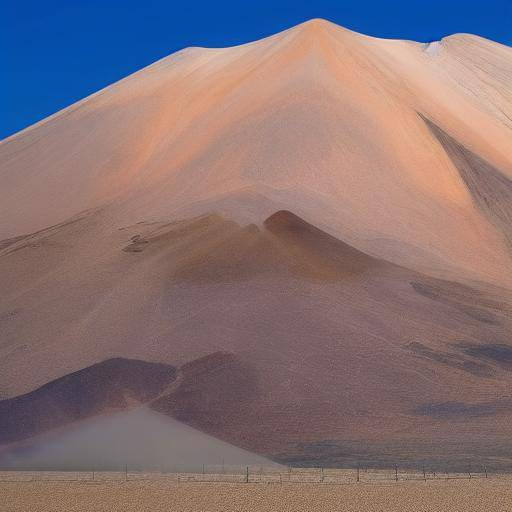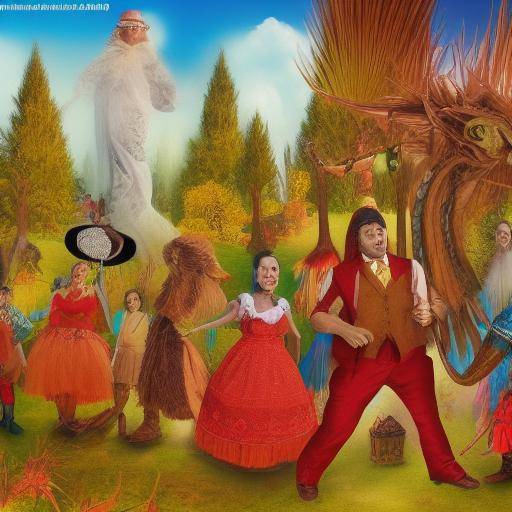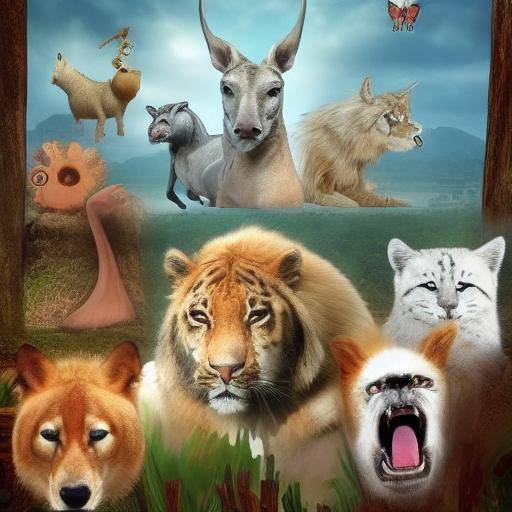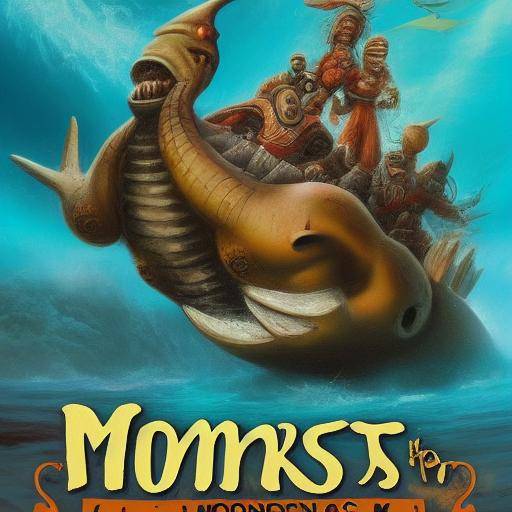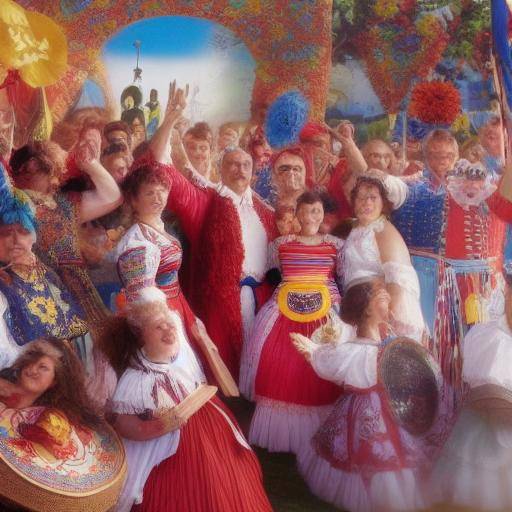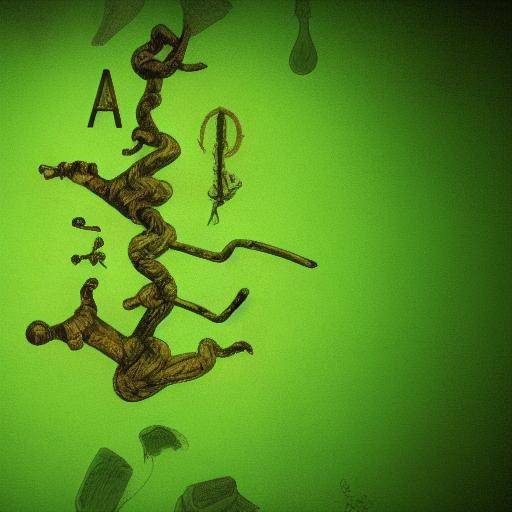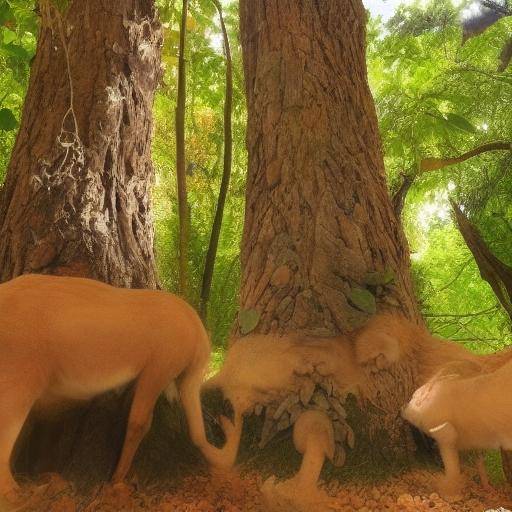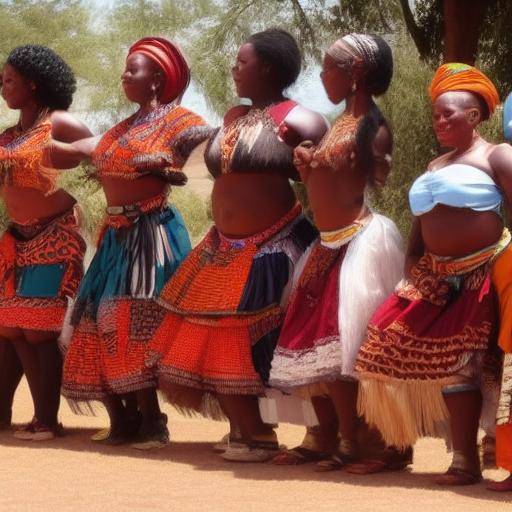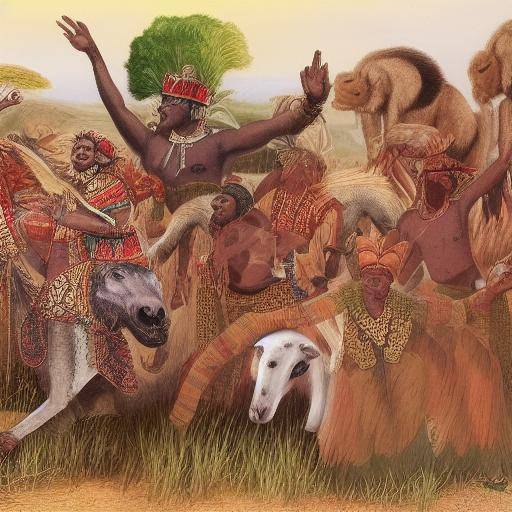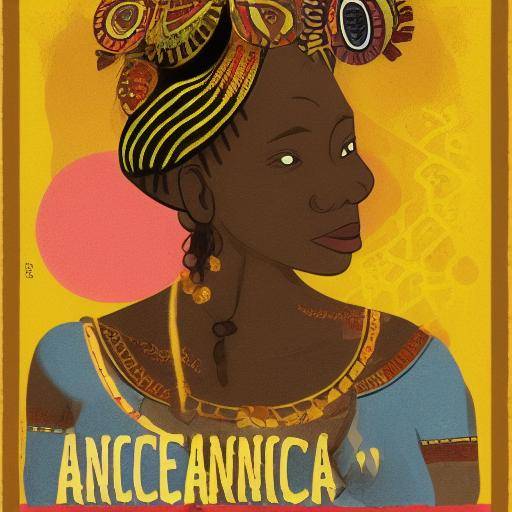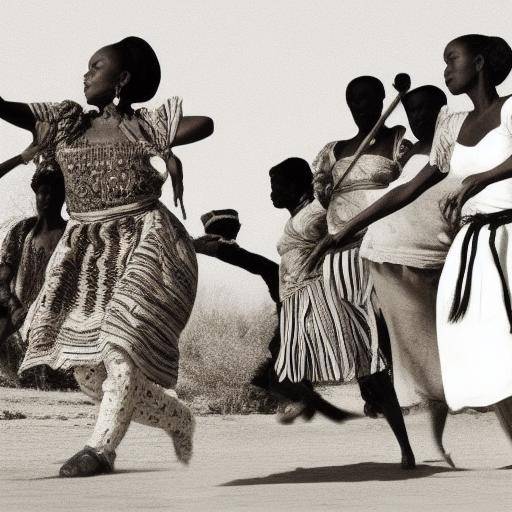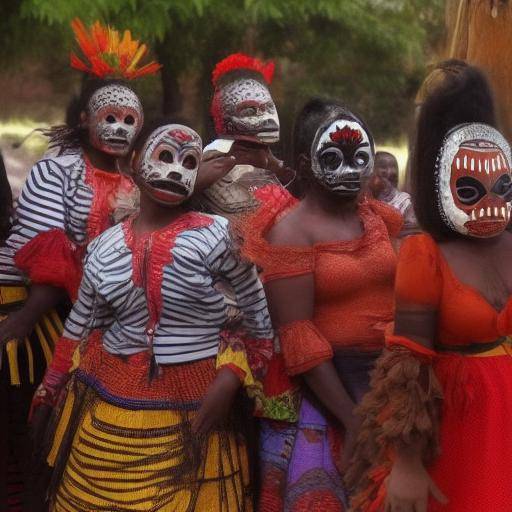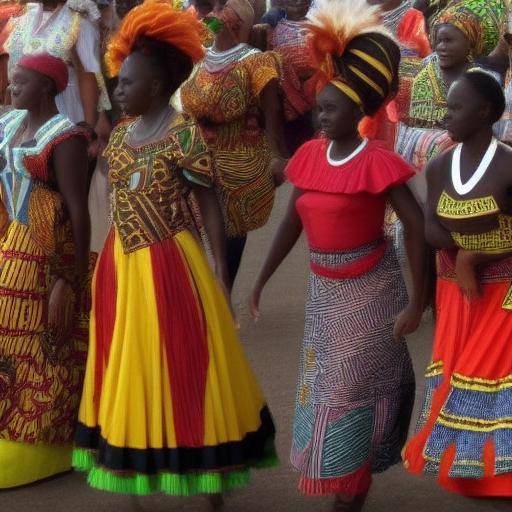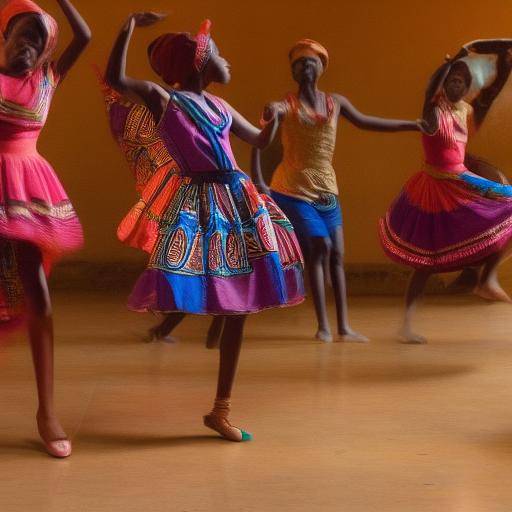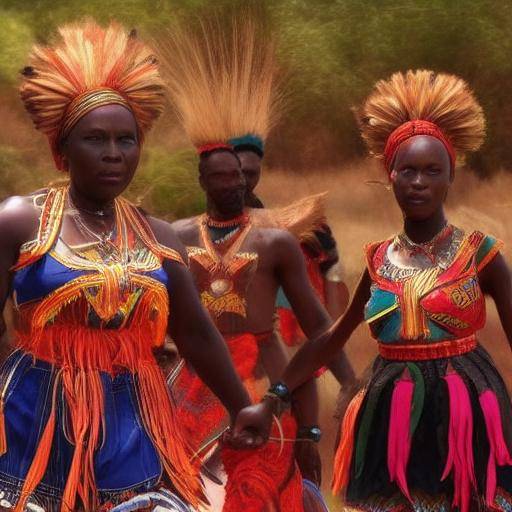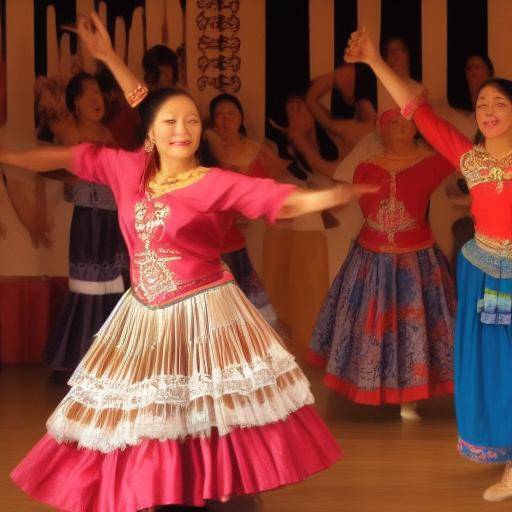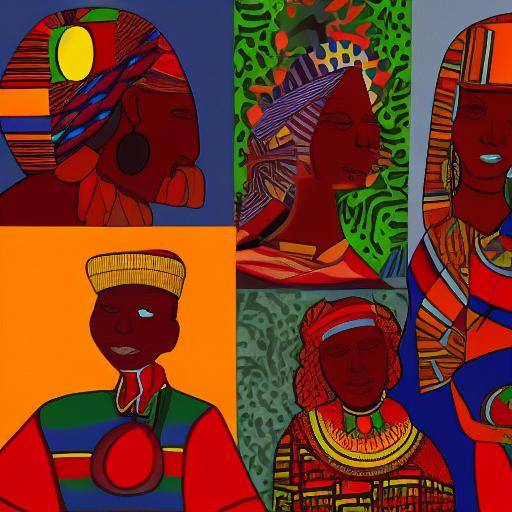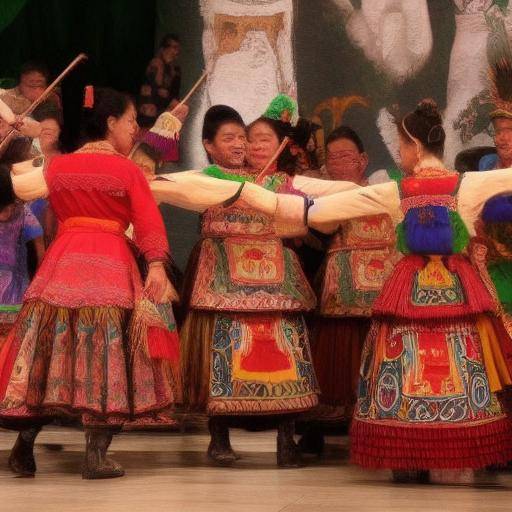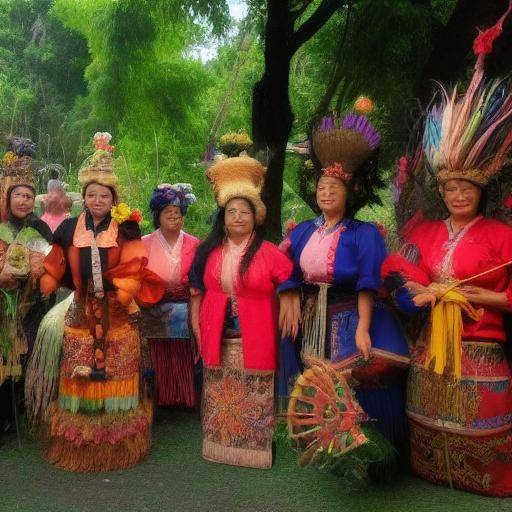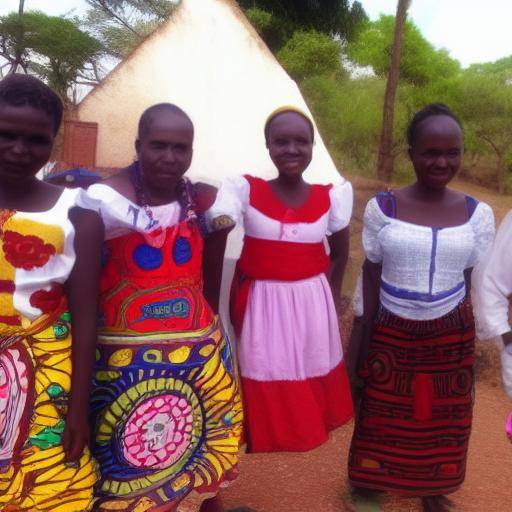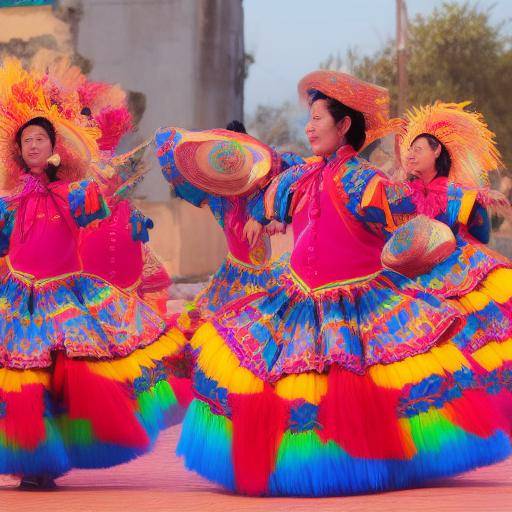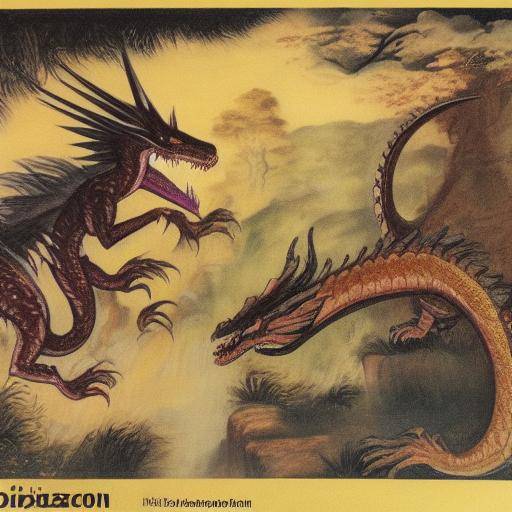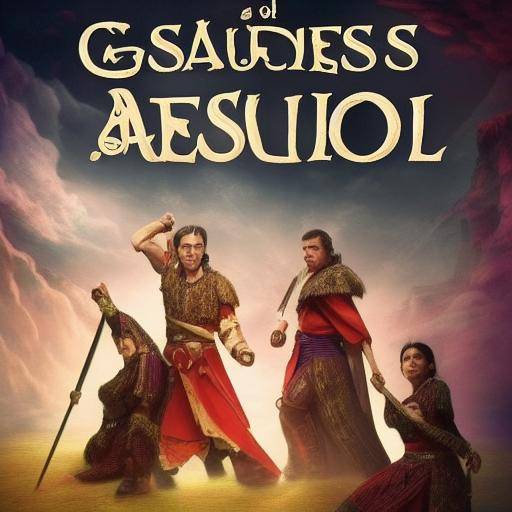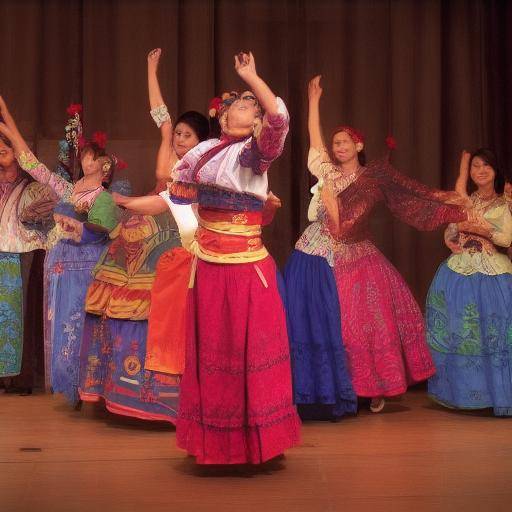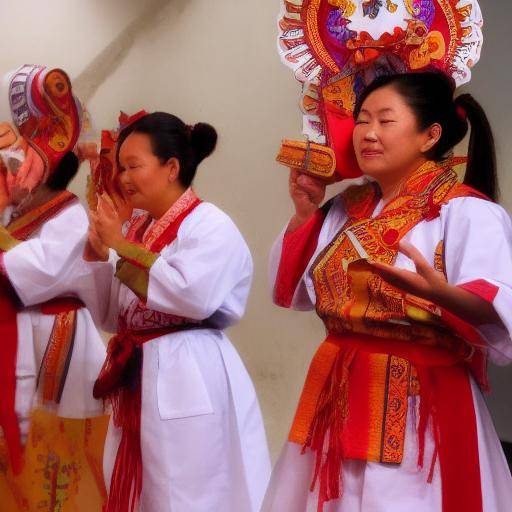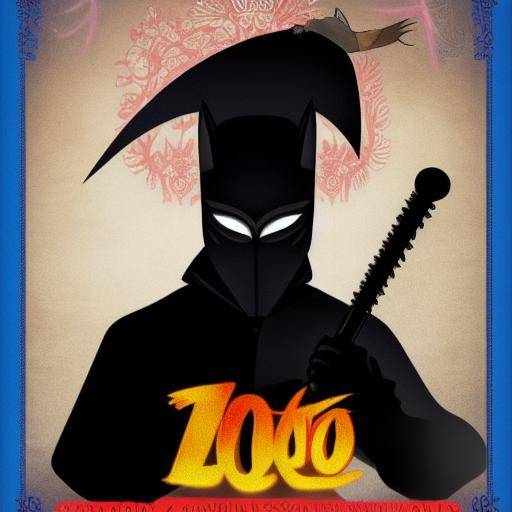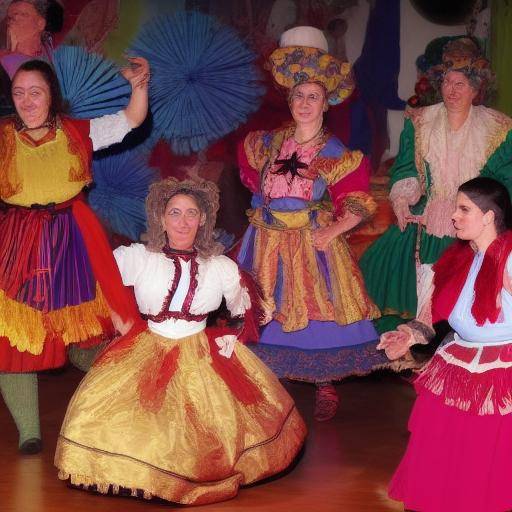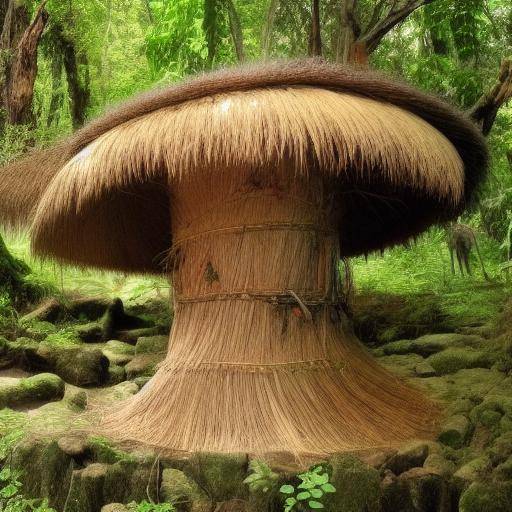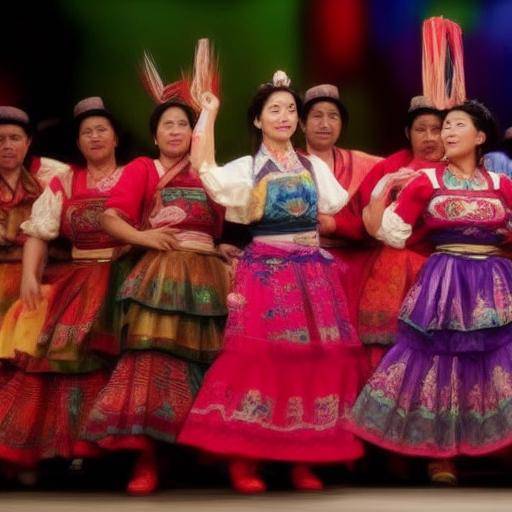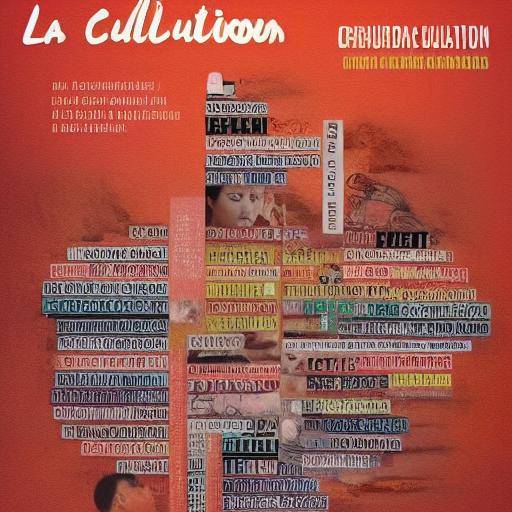
Introduction
Since time immemorial, Asian civilizations have nurtured their identities through stories, myths and legends about the creation of the world and humanity. These narratives, rooted in the folklore of Asian cultures, offer a fascinating window to their fundamental beliefs and rich cultural heritage. In this article, we will explore the myths of creation in the various Asian cultures, unraveling their similarities, differences and influence they have exercised in Asian societies. Prepare for a journey through Asian mythology, where we will discover extraordinary stories that have endured over the centuries and have left an imprint on the traditions of these fascinating cultures.
History and Background
Origins and Evolution of the Myths of Asian Creation
The myths of creation in Asian cultures date back to ancient times, rooted in oral traditions and ritual practices of ancient civilizations. These stories offer a unique vision of how Asian cultures have interpreted the emergence of the world and the emergence of humanity. From the enigmatic Chinese cosmogony to the profound narratives of India and Japan, each Asian culture has forged its own stories of creation, shaped by its religious beliefs, philosophies and the natural environment that surrounds them.
Key developments in Asian mythology
Throughout history, the creation myths have played a crucial role in shaping the cultural and spiritual identities of Asian societies. These stories have evolved through mutual influences, migrations and encounters with other cultures, enriching the mythological tapestry of Asia. From the epopeyas of Ramayana and Mahabharata in India, to the Taoist accounts in China and the legends of Kojiki in Japan, the myths of creation have endured as pillars of Asian cultural identity.
Deep Understanding of the Myths of Creation
Each myth of creation offers a window to the values, cosmic mysteries and the vision of the world of each Asian culture. These accounts reveal the relationship between the divine and the human, the genesis of the universe and the purpose of existence. The symbolic wealth and complexity of these myths invite deep exploration and a more complete understanding of the worldviews that have shaped Asian societies throughout the millennia.
Analysis in Deep
Influence and Contemporary Relevance
Despite the evolution of the modern world, the myths of creation continue to play a significant role in the lives of Asian communities. These mythological narratives remain sources of artistic, literary and philosophical inspiration, permeating popular culture and collective imagination. Its influence is evident in literature, cinema, contemporary art and cultural expressions that celebrate and reinterpret these ancestral stories.
Challenges and Disputes in the Interpretation of Creation Myths
As Asian societies face processes of social change and globalization, the interpretation of the creation myths has also generated debates and disputes. The challenges arise around the reinterpretation of myths in a modern context, conflicts with scientific narratives and the preservation of cultural authenticity in a world characterized by cultural homogenization.
Diverse Perspectives on Creation Myths
A detailed look at the myths of creation reveals a surprising diversity of perspectives and approaches among different Asian cultures. From myths focused on the struggle between gods and demons in India, to narratives that exalt cosmic harmony and balance in China and Japan, each myth reflects the cultural and spiritual singularity of its civilization. This diversity enriches the Asian mythological panorama, insinuating the wealth and complexity of the world's visions that have rooted in these cultures over the centuries.
Comprehensive review
Current applications and practices
Creation myths continue to play a relevant role in contemporary contexts, influencing areas as diverse as the ethics, morals, literature, art and the worldview of Asian communities. These accounts offer interpretative frameworks that continue to inspire deep reflections on human existence, the purpose of life and the relationship with the transcendent.
Opinions of Experts and Future Perspectives
The prospects of scholars and experts in Asian mythology provide a unique understanding of the myths of creation, revealing their implications in the present and their future projections. These opinions shed light on the evolution and continued relevance of the myths of creation in a globalized world, highlighting its potential to enrich intercultural dialogue and foster greater appreciation of Asian cultural diversity.
Analyzing Pro and Contra
An equitable assessment of the creation myths implies considering both positive and challenging aspects. While these accounts enrich the cultural and spiritual heritage of Asia, they also pose challenges in terms of reconciliation with modern scientific worldview and the preservation of its integrity in the context of globalization. This balanced analysis sheds light on the complexity and actuality of the creation myths in the twenty-first century.
Comparative analysis
Similarities and Differences in the Myths of Asian Creation
By comparing the myths of creation in different Asian cultures, fascinating parallels emerge that reveal convergence points in the midst of diversity. The presence of universal themes such as divine creation, the primordial conflict and the formation of the cosmos underlines the inherent human unity in the cultural diversity of Asia. However, each myth also reflects the cultural and philosophical particularities of its civilization, demonstrating a multiplicity of approaches in the interpretation of the origins of the universe and humanity.
Examples and Scenarios Detailed
Through concrete examples of myths of creation in different Asian cultures, the various conceptions about the creation and role of deities, heroes or cosmic entities in these accounts are illustrated. From the creation of a cosmic egg in Chinese mythology to the emergence of the gods in the Rigveda of India, each myth offers a unique narrative that reveals the imagination, spirituality and the worldview of its culture of origin.
Practical Tips and Accessible Recommendations
Exploring the Depth of Creation Myths
By entering the myths of creation, it is enriching to understand its cultural, philosophical and religious context, which allows us to appreciate its meaning beyond a simple narrative. The comparative reading of different versions of the same myth, as well as the exploration of its contemporary interpretations, provides a more complete view of these accounts and their influence on Asian cultures.
Personal Reflection and Intercultural Dialogue
The creation myths offer a fertile ground for personal reflection and intercultural dialogue, fostering greater understanding of the various worldviews present in Asia. In considering the similarities and differences in the myths of creation, a window opens for the appreciation of the cultural and spiritual diversity of these civilizations, nurturing a more profampl sense of human wealth that connects us all globally.
Industry Perspectives and Expert Reviews
Visions in Asian Mythology
Asian mythology, including creation myths, represents a crucible of visions that enrich the global cultural landscape. Experts on mythology and cultural studies offer an enriching vision of the depth and diversity of these stories, highlighting their value as a source of inspiration, reflection and intercultural dialogue. These opinions reveal the imperishable relevance of Asian myths of creation in the contemporary world.
Emerging Futures and Trends
The analysis of emerging trends in the reinterpretation and dissemination of creation myths in the digital and global context offers a vision of their future projection. The emergence of new narratives, adaptations in contemporary media and debates on cultural preservation shed light on the dynamism and continuity of the myths of creation in a constantly changing world.
Interviews: Voices of Asian Mythology
Interviews with experts in Asian mythology, scholars and traditional narrators offer an intimate perspective on the meaning and lasting impact of the myths of creation in Asian cultures. These voices reveal the timeliness and spiritual wealth of these accounts, inviting a deeper and respectful appreciation of the mythological heritage of Asia.
Case Studies and Practical Applications
Current Impact of Creation Myths
Case study analysis illustrates how creation myths continue to permeate everyday life, artistic expressions and rituals in various Asian communities. From religious festivals to contemporary forms of mythological narrative, these stories continue to play a vital role in the cultural and spiritual identity of Asia, projecting its influence in the present.
Lessons Learned and Inspirational Examples
Detailed exploration of the results derived from the revitalization of the creation myths offers significant lessons and inspiring examples that reveal their transformative power in society. These cases demonstrate the capacity of the creation myths to nurture cultural identity, foster the sense of belonging and offer a cosmovision that transcends individualism to connect with our deepest roots.
Future Trends and Predictions
Impulsors of Change in Creation Myths
The analysis of emerging trends highlights the driving factors that will shape the future evolution of creation myths in Asian cultures. From contemporary narratives that seek to reinterpret these accounts for global audiences, to the preservation of oral traditions in a digital world, these impulses will influence the way in which the myths of creation will define cultural identity in the future.
Predictions on the Future of Creation Myths
Based on current trends and processes of cultural and technological transformation, it is possible to project how the myths of creation will evolve and be projected into Asian cultures. The predictions point to a continuity in the revaluation and reinvention of these accounts, together with challenges related to their interpretation in a constantly changing world.
Conclusions and FAQs
Conclusion
The myths of creation in Asian cultures are built as unbreakable pillars that have shaped the religious, philosophical and artistic spheres of these ancient civilizations. In their timeliness, complexity and diversity, these stories continue to fascinate, inspire and reveal the depths of the cosmovisions that have woven the rich mythological heritage of Asia.
Frequently asked questions
What role do myths of creation play in Asian cultures in everyday life?
The myths of creation in Asian cultures have a significant impact on everyday life, serving as an interpretative framework to understand the relationship between the human and the divine, nature and the cosmos. These accounts influence religious festivities, artistic expressions, ethics and morals, offering a profound and transcendent view of existence.
How have the creation myths evolved in response to globalization?
Globalization has raised challenges and opportunities for myths of creation in Asian cultures. While there has been a revaluation of these accounts as manifestations of cultural identity, there has also been a need to reinterpret them in a global context, generating debates about their preservation and authenticity in an increasingly interconnected world.
What is the contemporary relevance of the myths of creation in Asian cultures?
The myths of creation remain relevant in Asian cultures due to their continued influence in literature, art, spirituality and the building of identities. These accounts offer deep insights into human existence, the nature of the universe and the purpose of life, nurturing a wider understanding of Asian cultural heritage.
How are the myths of creation preserved and transmitted in Asian cultures?
The preservation and transmission of myths of creation in Asian cultures is carried out through oral traditions, religious festivals, artistic expressions and now, also through digital and audiovisual media. These stories continue to form part of education, intergenerational narrative and the construction of cultural identities in Asia.
What are the main challenges facing the myths of creation in Asian cultures today?
The myths of creation in Asian cultures face challenges related to their reinterpretation in a contemporary context, the preservation of their authenticity against globalization, and reconciliation with modern scientific narratives. These challenges reflect the need to balance the continuity of these narratives with the ability to adapt to cultural and social changes.
How can Asian creation myths enrich intercultural dialogue?
Asian creation myths offer a wealth of visions that can enrich intercultural dialogue by nourishing a deeper appreciation of Asia's cultural and spiritual diversity. These stories invite a respectful understanding of Asian cosmovisions, fostering the connection between human experiences in a globalized world.
This article has thoroughly explored the myths of creation in Asian cultures, revealing the depth, diversity and timeliness of these ancestral accounts. From its influence on everyday life to its future projection, the myths of creation remain rooted in the societies and cultural identity of Asia, enriching the collective imagination and offering profound perspectives on human existence.
Thank you for accompanying us on this journey through Asian mythology!

